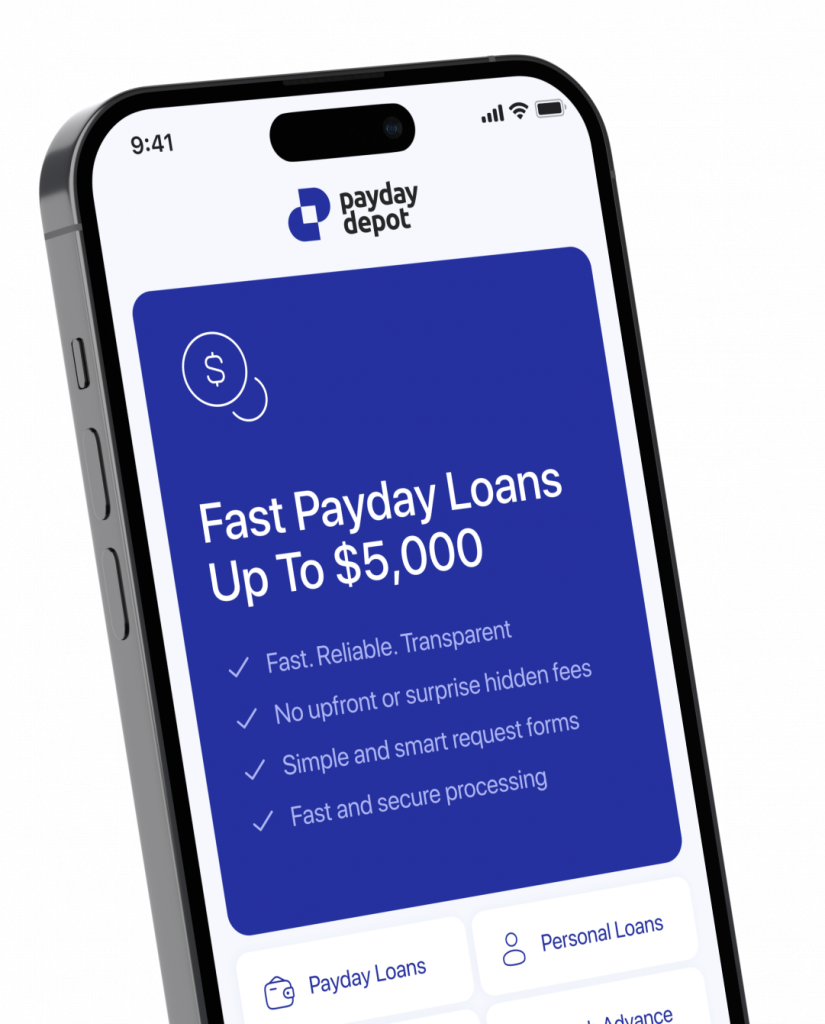Lorien Strydom, a finance and law graduate, augmented her skills with courses in content marketing, digital marketing. Her articles, featured on The Balance, showcase her expertise and leadership in the industry. With over 16 years of experience, she covers diverse topics in finance and commerce. Lorien founded JLT Creative, specializing in content for e-commerce and fintech. Read more
Short-terms Loans Online
Short-term loans provide you with money for a brief period, usually less than a year. When you take out a short-term loan, you commit to repaying it, with interest, within a set time. The repayment plan generally occurs on a weekly, bi-weekly, or monthly basis.
Short-term loans can be highly convenient for addressing immediate financial needs. However, the convenience of quick money comes at a cost. High interest rates and additional fees make these loans expensive, so they should only be used for short-term financial emergencies.
Types of Short-Term Loans
Payday Loans
Short-term payday loans provide a cash advance on your upcoming paycheck. Short-term payday loans are easy to obtain, with most lenders only requiring borrowers to provide proof of income and a bank account in order to qualify for one.
Unlike traditional loans, payday loans do not require a credit check. However, such loans come with high fees and strict repayment deadlines that can make it difficult to pay off the debt on time.
If you’re thinking about taking out a short-term payday loan, be aware that lenders may charge high interest rates, often as high as 400% for a two-week loan. This is because payday lenders typically charge a flat fee of $10 to $30 for every $100 borrowed, depending on the laws of that particular state.
In addition to the interest rate, lenders may also charge late fees or add on extra fees if you can’t repay the debt on time. You may also be required to pay a fee to access your loan funds through a prepaid debit card. Such fees can apply when checking your balance, or you may end up paying a monthly service fee for the account.
Keep in mind that short-term payday loans usually only allow you to borrow small amounts of cash. Many payday loans have a maximum limit of $500, although this amount varies by state. The loan must be repaid in a single payment, usually within two to four weeks.
Credit Card Cash Advances
If you find yourself in urgent need of cash, you may be able to obtain a short-term loan by using your current credit card if you have one. Since you have already been approved for the card and its corresponding credit limit, no credit check is required.
You can use your credit card to withdraw funds from an ATM. The amount of money you can access through a credit card cash advance is usually determined by your credit limit. However, some credit card issuers may set a specific limit for cash withdrawals, which may be less than your overall credit limit.
When you take out a cash advance on your credit card, the issuing bank typically charges you a fee of 3% to 5% of the borrowed amount. This cash advance fee is added to the total amount you wish to borrow, which will then begin accruing interest at a higher rate than your normal purchases.
Interest rates for credit card cash advances can range from 17% to 29% APR. The typical interest rate is 24.76%, and interest will begin accruing as soon as you withdraw the money.
If you’re looking to save money on interest and fees, consider using a credit card that offers a 0% introductory APR period to float your purchases, then pay off the balance due before the 0% period expires.
Pawnshop Loans
If you need a short-term loan, you can use valuable items such as electronics or jewelry to secure money from a pawnshop. Instead of selling your item, you use it as collateral for the loan. However, if you can’t repay the money on time, you will likely lose the item.
It’s important to note that pawnshops will only offer a loan for a percentage of the item’s value, typically ranging from 25% to 60%.
The National Pawnbrokers Association reports that the typical loan amount given by pawnshops is $150, with a repayment window of 30 days. Instead of charging interest rates, pawnbrokers typically charge high fees to lend money that you’ll have to pay back, in addition to the amount you borrowed, in order to retrieve your collateral.
While this type of short-term loan does not require a credit check, defaulting on the payment does not affect your credit score.
Paycheck Advances
With a paycheck advance, your employer agrees to give you some of the money you will earn before you’re due to receive it. In other words, you’re borrowing money from your next paycheck, directly from the source.
One great thing about paycheck advances is that often there’s no interest involved, although this may depend on whether your employer provides this option.
If your employer doesn’t offer paycheck advances, there are several mobile apps available that can be incredibly useful. These apps may enable you to borrow money without going through a credit check. And when you receive your paycheck, the amount you borrowed is automatically deducted from your account, without any additional fees or interest charges.
Keep in mind that some apps set relatively low limits for how much money you can borrow per pay period, at least in the beginning. For instance, Earnin starts with a limit of $100, but this can increase over time to $500.
Car Title Loans
When applying for a car title loan, you will need to offer up a valuable item as collateral, such as the title to your truck, car, or motorcycle. This will allow you to access larger loan amounts than other short-term loan options, ranging anywhere from a few hundred dollars upwards to $5,000 and more.
Unlike personal loans, which have strict approval requirements and credit checks, title loans do not require as much paperwork. However, if you fail to make payments, your vehicle may be repossessed by the car title lender.
How to Find the Best Short-Term Loans Near Me?
If you’re in need of a short-term loan, it’s important to take into account the interest rate, loan term, and loan amount. It’s crucial to take note of any extra costs involved, such as application fees or late payment charges.
It’s a good idea to read customer reviews and choose a lender who is transparent about all costs and terms, as this indicates they are trustworthy. It’s best to avoid lenders who don’t disclose fees upfront or promise approval without a credit check, as these could be warning signs for potential scams.
How Much Can I Borrow With a Short-Term Loan?
The amount you can borrow varies significantly depending on the lender and your financial situation. Generally, short-term loans range from $100 to $2,500. Some lenders may offer more, especially if you have good credit and a stable income.
Only borrow as much as you can afford to repay within the agreed time frame. Excessive borrowing can lead to a debt spiral, where you end up borrowing more to repay existing loans.
Pros and Cons of Short-Term Loans
Pros
- Quick access to funds: Short-term loans are often approved quickly, providing fast access to cash.
- Less strict requirements: These loans usually have easier qualification criteria compared to long-term loans.
- No long-term commitment: Since these loans are designed to be repaid quickly, short-term loans don’t tie you down for a lengthy period.
Cons
- High interest rates: One of the most significant drawbacks is the high interest rates attached to these loans.
- Additional fees: Late payments can result in extra charges, making the loan even more expensive.
- Potential debt trap: Failing to repay the loan on time could lead to a cycle of debt.
While the pros offer immediate relief and convenience, the cons pose a serious risk to your financial health. Therefore, use short-term loans cautiously, and only for urgent needs.
Requirements for Getting an Online Short-Term Loan
To qualify for an online short-term loan, you’ll generally need:
- Proof of income: This can be a paycheck stub or bank statement.
- Government-issued ID: A valid ID to confirm your identity and age.
- Active bank account: Lenders often require a valid checking or savings account for depositing the loan funds and setting up repayment.
Despite these lenient requirements, you should not take out a short-term loan without understanding the costs and repayment terms. Failing to do so could lead to financial difficulties.
How to Get a Short-Term Loan Near Me?
- Research lenders: Start by researching different lenders, both online and offline, to compare terms and conditions.
- Check eligibility: Make sure you meet the lender’s requirements to avoid wasting time or affecting your credit score.
- Apply: Submit the required documentation, which will usually include proof of income, a government-issued ID, and bank account details.
- Review and accept terms: Once approved, read all terms carefully before accepting the loan.
- Receive funds: Upon acceptance, the loan amount will be transferred to your bank account, often within a single business day.
Alternatives to Short-Term Loans
Credit Card
When you have an emergency expense, it might be more cost effective to pay with a credit card instead of taking out a short-term loan. While you risk incurring credit card interest, the rate will almost certainly be lower than that of a payday loan. You may also be able to find a credit card that offers low interest rates or a period of no interest, which can buy you time to repay the debt.
Personal Loan
Personal loans can be a better option than short-term loans. The terms and rates depend on your credit, but they are usually more favorable than short-term loans. Also, personal loans have longer terms and higher loan limits. However, you may need to fill out a more extensive application and meet certain credit requirements for qualification.
Borrowing From Friends and Family
Borrowing money from someone you know can be one of the easiest ways to get your hands on the money you need. But if you borrow money from friends or family, it’s important to establish clear repayment terms to avoid damaging your relationship.
Personal Line of Credit
If you need to cover unforeseen expenses or have a shortage of cash, a personal line of credit can be a useful option. This type of loan is unsecured and has a variable interest rate. It is like a credit card, as it allows you to borrow funds when necessary and repay them with interest.
Salary Advance
Some employers offer salary advances, which give you your paycheck ahead of time. This means that you’ll receive less money in the future to make up for the advance. However, not all employers offer this option, and those that do may have restrictions on how much you can borrow or when you can do so.
Borrowing Against Your Home Equity
If you are a homeowner, you can utilize your home equity by applying for a home equity loan or line of credit in the event of a major emergency or a non-urgent situation. However, keep in mind that these options typically take a few weeks to process.
Can You Get a Short-Term Loan With Bad Credit?
It is possible to get a short-term loan with bad credit, but it comes with caveats. Lenders who specialize in bad credit loans often charge higher interest rates and additional fees compared to lenders offering standard loans.
The rationale behind this additional cost is that lenders perceive individuals with low credit scores as high-risk borrowers. Therefore, the cost of borrowing increases on higher-risk loans to compensate for the perceived uncertainty of repayment.
While short-term loans can be a lifeline for those in immediate need of funds, they should be carefully considered. The elevated costs can lead to expensive debt, making it even harder to improve your credit in the long run.
What To Look Out For
Avoid Payday Loans
If you have a poor credit history and need fast cash, you may be tempted to turn to payday loans. However, payday loans are usually for small amounts of money, typically $500 or less, and must be repaid by your next payday.
The high fees and interest rates associated with payday loans can result in an annual percentage rate (APR) of around 400%, which is significantly higher than other funding options like credit cards.
Instead, you could consider a payday alternative loan (PAL) offered by some federal credit unions. Most payday alternative loans only charge an application fee of up to $20, and the interest rates are capped at a maximum of 28%.
Compare Lenders
When you need a short-term loan, it’s smart to shop around. This will help you avoid unnecessary expenses and stress down the line. Take some time to compare different options before making a decision. You may also want to consider using a credit card you already have, especially if it has a lower APR than the loan you’re considering.
If you need to consolidate debt or pay for a big expense, a personal loan could be a good choice. Just make sure you only borrow the minimum amount you need, and that you’re confident you can pay it back on time.
If you do choose a short-term loan, be sure to review the contract carefully. Look out for terms such as origination fees, late fees, and prepayment fees, and familiarize yourself with what they mean as well as how much they will cost for your particular loan.
FAQ
How do I get a short-term loan?
The best way to get a short-term loan is by comparing lenders and applying online. Online lenders typically offer a fast approval process and can offer competitive rates, depending on your credit score.
Can short-term loans build credit?
One way to improve your credit score is by taking out short-term loans, provided that your lender reports your payments to the major credit bureaus: Equifax, Experian, and TransUnion.
What is the shortest loan I can get?
The duration of a personal loan term varies based on the lender or loan type you select. For instance, payday loans typically have shorter terms that last only a few weeks, whereas conventional lenders may offer longer terms that last for several months.



